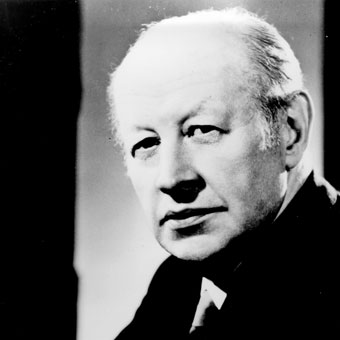
Eugene Goossens
Though remembered as a conductor, the compositions of Euguene Goossens were ranked between the wars alongside those of Bax, Bridge and Walton * Studied composition at the Royal College of Music in London with Charles Wood and Stanford * Early influences include Debussy, Strauss and Stravinsky's The Firebird * Played violin in Queen's Hall Orchestra under Henry Wood, who allowed him to conduct own works at the Proms in 1913 * His music's initial radical nature mellowed into a style that was technically fluent, imaginatively coloured, melodious and often eclectic * Expert conductor, particularly of demanding contemporary repertoire * In 1921 conducted the London concert premiere of The Rite of Spring * In 1920s conducted Beecham's British National Opera Company at Covent Garden, Diaghilev's Ballets Russe, and directed series of new music concerts * Subsequently held appointments with Rochester Philharmonic (1923-31), Cincinnati Symphony Orchestra (1931-46) and Sydney Symphony Orchestra (1947-56) * Championed the cause of the building of the Sydney Opera House
Works by Eugene Goossens include:
Miniature Fantasy (1911) for string orchestra
Symphony No.1 (1939-40) and Symphony No.2 (1942-44)
Pastorale (1942) for string orchestra
The Apocalypse (1951-54) for soloists, chorus and orchestra
"Music is the birthright of the people. The great composers whose music is timeless have a message for all who will hear it. Music is not the property of a small group of inititates or a priveleged few to whom its secrets are alone vouchsafed. It exists for our enjoyment, physically, mentally and spiritually..." — Eugene Goossens
